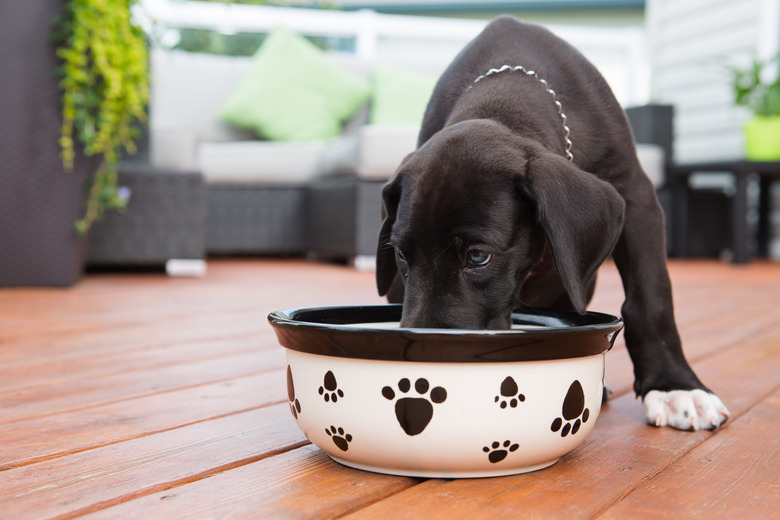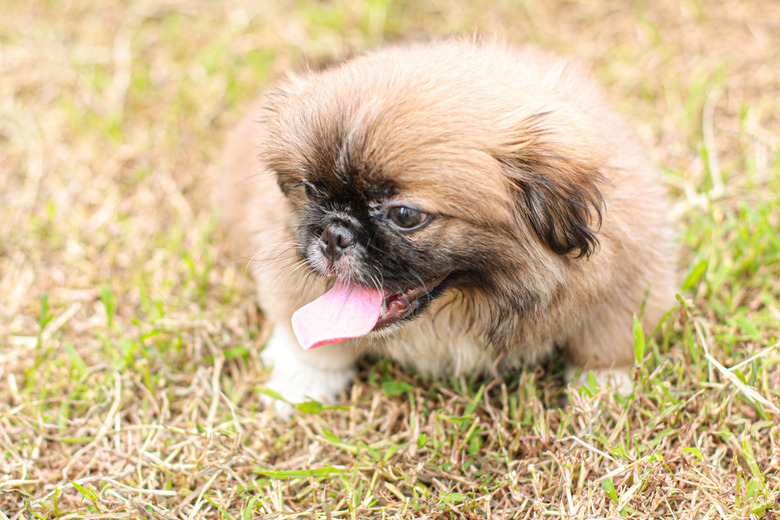Can Dogs Eat Egg Yolk?
Is your dog begging at your side when you sit down to a breakfast of sunny side up or scrambled eggs? The good news is that slipping them a bit of egg under the table isn't dangerous and can even be good for dogs. Egg yolks, whites, and even shells are nutritional powerhouses that can be consumed by dogs for an extra dietary boost.
Egg yolk nutrition for dogs
Egg yolk nutrition for dogs
Eggs yolks are packed with protein. Each standard large egg has 2.7 grams of protein along with 4.5 grams of fat and 184 milligrams of cholesterol (which won't lead to high cholesterol concerns in dogs) with minute amounts of carbohydrates.
Egg yolk for dogs also provides essential minerals. Each yolk has 22 milligrams of calcium, 0.46 milligrams of iron, 1 milligram of magnesium, 66 milligrams of phosphorus, 19 milligrams of potassium, 8 milligrams of sodium, and 0.39 milligrams of zinc. Yolks also contain a multitude of vitamins, including A, B-6, B-9, B-12, D, E, and K. Vitamin D in eggs works in concert with calcium and protein to help strengthen and maintain strong bones in dogs.
Egg yolks also contain some of the highest concentrations of the nutrient choline. This nutrient helps support healthy development of the brain of puppies in pregnant dogs. Veterinarians sometimes prescribe choline supplements to treat cognitive disorders in dogs as well as epilepsy. Yolks also contain the antioxidants lutein and zeaxanthin, which can help in preventing cataracts and in boosting overall eye health in older dogs.
Egg whites also contain protein and many of these same nutrients. Even eggshells for dogs, which can be served over food if finely ground, offer calcium and phosphorous. If your dog has a history of calcium oxalate bladder stones, do not give him egg shells.
Biotin deficiency in dogs
Biotin deficiency in dogs
Biotin is a vitamin attributed to helping keep skin and fur healthy, and biotin deficiency in dogs can lead to dry, flaky skin, brittle fur, and fur loss. These fur changes are particularly noticeable on a dog's face. It's also important for fat metabolism and cell growth. Egg yolks are chock full of biotin, which is also called vitamin H or B7.
While egg yolks contain lots of healthy biotin, the protein avidin, found in raw egg whites, can bind to it, hampering biotin absorption in a dog's digestive system. Luckily, most commercial pet foods contain the vitamin, so biotin deficiency in dogs is unusual.
Safety concerns for dogs who eat egg shells
Safety concerns for dogs who eat egg shells
While it might be tempting to throw a spare egg yolk into your dog's dish after separating egg whites for your own recipe, it can be dangerous to feed them raw eggs. As with humans, salmonella is a concern, and it can wreak havoc on your dog's digestive system if the raw egg you feed them is contaminated with the bacteria. Make sure to cook both the white and yolk of the egg until they are firm to kill off any bacteria. It's also a good idea to rinse off eggs if you are planning on feeding your dog ground-up shells, as salmonella bacteria lurk on the outside of the eggs and can enter through a crack in the shell.
Another concern is that your pup might develop an egg allergy at any time, so it's important to be vigilant if you see them developing itching or other skin problems or digestive issues after consuming eggs.
Diet concerns for feeding dogs egg shells
Diet concerns for feeding dogs egg shells
Egg yolk from a large egg provides 55 calories, so depending on the size of your dog, a single yolk might provide a significant portion of their calories for the day. A whole egg contains 70 to 80 calories. Another consideration is how you cook the eggs. Hard-boiled eggs don't contain any extra calories, but if you're frying them in butter or oil, the calorie count can shoot up. Plus butter or oil can cause digestive upset in dogs and can be a serious problem for dogs with a history of pancreatitis.


